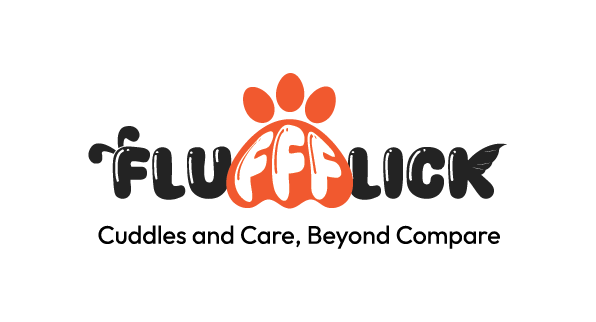Proper nutrition is the cornerstone of your pet’s overall health and well-being. Just like humans, pets require a balanced diet filled with essential nutrients to thrive. Whether you’re a dog lover or a cat enthusiast, understanding what to feed your pet can help prevent health issues and ensure a long, happy life. In this guide, we’ll explore the essential nutrients your pet needs, the best-balanced diet for dogs and cats, high-protein pet food brands, a complete guide to dog and cat nutrition, homemade dog food recipes for weight gain, and cat food options for sensitive stomachs.
1. Essential Nutrients for Healthy Pets
Just like humans, pets require a variety of nutrients to support their bodily functions and maintain optimal health. Here are the key nutrients essential for your pet’s well-being:
a. Proteins
- Importance: Proteins are crucial for muscle development, tissue repair, and overall growth. They provide the amino acids that pets need for numerous bodily functions.
- Sources for Dogs and Cats: Chicken, beef, fish, and eggs are excellent sources of high-quality animal protein. Cats, being obligate carnivores, particularly require a diet rich in animal protein.
b. Fats
- Importance: Fats provide energy, help absorb fat-soluble vitamins, and support healthy skin and coat. They also play a role in brain function and reproductive health.
- Sources for Dogs and Cats: Fish oil, chicken fat, and flaxseed are common sources of healthy fats. Omega-3 and Omega-6 fatty acids are particularly beneficial.
c. Carbohydrates
- Importance: While not essential for cats, carbohydrates provide energy and fiber for dogs. They aid in digestion and contribute to gut health.
- Sources for Dogs: Sweet potatoes, brown rice, and oatmeal are good sources of digestible carbohydrates for dogs.
d. Vitamins and Minerals
- Importance: Vitamins and minerals support various bodily functions, including immune health, bone development, and nerve function.
- Essential Vitamins: Vitamin A, D, E, and B-complex vitamins are crucial for both dogs and cats.
- Essential Minerals: Calcium, phosphorus, potassium, and magnesium are vital for bone health and cellular function.
e. Water
- Importance: Water is the most crucial nutrient, essential for hydration, digestion, and nutrient absorption.
- Hydration Tips: Always provide fresh, clean water for your pets. Wet food can also help increase water intake, especially for cats.
2. Best Balanced Diet for Dogs and Cats
A balanced diet for pets includes the right proportions of proteins, fats, carbohydrates, vitamins, and minerals tailored to their specific needs.
a. Balanced Diet for Dogs
- Adult Dogs: A diet that includes high-quality protein, moderate fat, and digestible carbohydrates is ideal. Look for foods labelled as “complete and balanced” by organizations such as the Association of American Feed Control Officials (AAFCO).
- Puppies and Senior Dogs: Puppies need a higher protein and fat diet for growth, while senior dogs benefit from lower-calorie foods to maintain a healthy weight.
b. Balanced Diet for Cats
- Adult Cats: Cats require a high-protein, low-carbohydrate diet. A diet rich in animal-based proteins is ideal, with minimal grains or fillers.
- Kittens and Senior Cats: Kittens need extra protein and calories for growth. Senior cats may benefit from lower-calorie options with joint support supplements like glucosamine.
3. Best High-Protein Pet Food Brands
For pets that require a high-protein diet, selecting the right brand is crucial. Here are some top high-protein pet food brands:
a. For Dogs
- Orijen Dog Food: Known for its high-quality, biologically appropriate diet, Orijen offers formulas with 85% animal ingredients.
- Acana Dog Food: Acana features regional ingredients and high protein content, suitable for active dogs.
- Wellness CORE: Offers grain-free, protein-rich recipes with high-quality meat sources like turkey, chicken, and fish.
b. For Cats
- Blue Buffalo Wilderness: A high-protein, grain-free option with real meat as the first ingredient.
- Tiki Cat: Offers high-protein, low-carb options with real fish and poultry, perfect for obligate carnivores.
- Merrick Backcountry: Combines freeze-dried raw and high-protein kibble for a diet that mimics a cat’s natural prey.
4. Complete Guide to Dog and Cat Nutrition
Understanding the complete nutritional needs of your pet can help you make informed decisions about their diet.
a. Nutritional Needs of Dogs
- Protein Requirements: Adult dogs need at least 18% of their diet to be protein, while puppies need around 22% for proper growth.
- Fat Requirements: Fat should make up about 5-8% of the diet for adult dogs, with higher percentages for puppies.
- Carbohydrates and Fiber: While not essential, carbohydrates can provide energy. Fiber helps with digestion and can be beneficial for dogs with sensitive stomachs.
b. Nutritional Needs of Cats
- Protein Requirements: Adult cats require at least 26% protein in their diet, with kittens needing about 30%.
- Fat Requirements: Fat should make up 9% of a cat’s diet for adults, while kittens may need a bit more.
- Carbohydrates: Cats have a limited ability to digest carbohydrates, so these should be minimal in their diet.
5. Homemade Dog Food Recipes for Weight Gain
If your dog needs to gain weight, incorporating high-calorie, nutrient-dense foods can help. Here are some simple, balanced homemade recipes:
a. Chicken and Rice Recipe
- Ingredients:
- 1 pound of ground chicken
- 1 cup of cooked brown rice
- 1 cup of vegetables (carrots, peas)
- 1 tablespoon of fish oil (for healthy fats)
- Instructions:
- Cook the ground chicken in a pan until fully cooked.
- Mix in the cooked rice and vegetables.
- Add fish oil and mix well.
- Cool before serving.
b. Beef and Sweet Potato Recipe
- Ingredients:
- 1 pound of ground beef
- 2 medium sweet potatoes, cooked and mashed
- 1 cup of cooked quinoa
- 1 tablespoon of coconut oil
- Instructions:
- Cook the ground beef in a pan until no longer pink.
- Mix in the mashed sweet potatoes and quinoa.
- Add coconut oil and mix thoroughly.
- Cool before serving.
c. Turkey and Oatmeal Recipe
- Ingredients:
- 1 pound of ground turkey
- 1 cup of cooked oatmeal
- 1 cup of chopped vegetables (zucchini, spinach)
- 1 tablespoon of olive oil
- Instructions:
- Cook the ground turkey in a pan until fully cooked.
- Mix in the cooked oatmeal and chopped vegetables.
- Add olive oil and mix well.
- Cool before serving.
6. Cat Food Brands for Sensitive Stomachs
Cats with sensitive stomachs require special diets that are easy to digest and free from common allergens. Here are some of the best cat food brands for sensitive stomachs:
a. Royal Canin Digestive Care
- Specially formulated to support digestive health with a blend of prebiotics, fibers, and highly digestible proteins.
b. Hill’s Science Diet Sensitive Stomach & Skin
- Made with easily digestible ingredients, this food helps support digestive health and a healthy skin and coat.
c. Blue Buffalo Sensitive Stomach
- A grain-free formula with a blend of prebiotics, probiotics, and high-quality proteins to support a healthy digestive system.
d. Purina Pro Plan Sensitive Skin & Stomach
- Contains high-protein salmon and rice with no artificial colours or flavours, making it a gentle option for cats with food sensitivities.
Conclusion
Understanding your pet’s nutritional needs and providing a balanced diet is key to their long-term health and happiness. Whether you’re feeding a growing puppy, a senior cat, or a pet with special dietary requirements, choosing the right foods and supplements can make all the difference. Always consult your veterinarian when making significant changes to your pet’s diet, and monitor their health closely to ensure they’re getting the nutrients they need.

